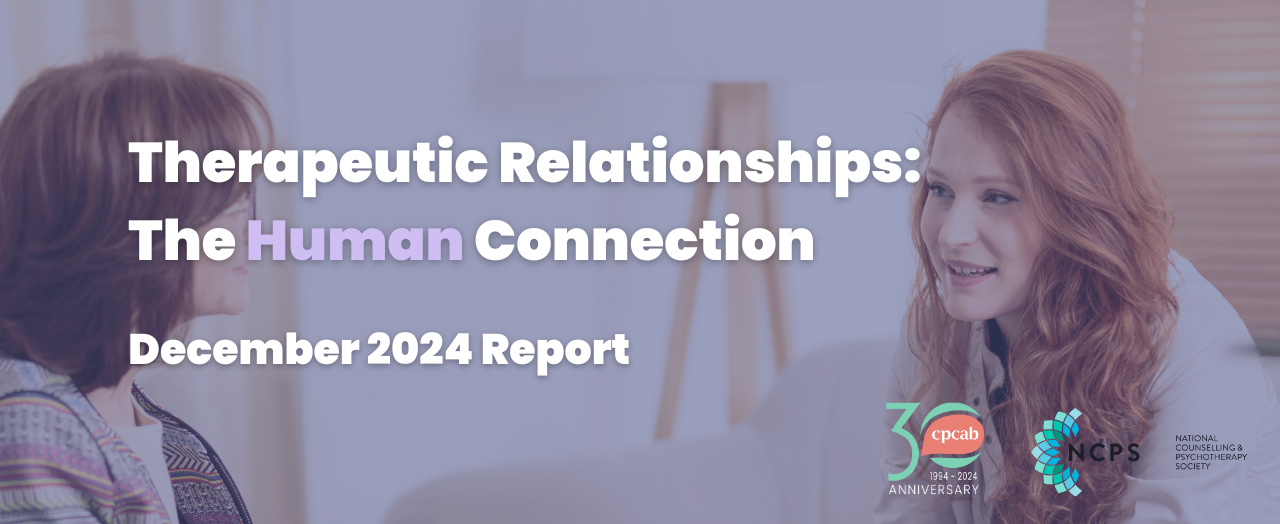
New Report Released: The Importance of Human Connection and the Impact of Digitalisation on Counselling Training and Practice
The Counselling and Psychotherapy Central Awarding Body (CPCAB), in collaboration with the National Counselling and Psychotherapy Society (NCPS), has released its December 2024 report, The Importance of Human Connection and the Impact of Digitalisation on Counselling Training and Practice. This landmark publication explores how human connection remains the cornerstone of effective counselling, even as digitalisation reshapes the field.

Key Findings
- Human Connection is Critical: A staggering 98% of professionals in the CPCAB survey believe that human connection is essential in counselling training. Additionally, 80% of the UK public prefers human interaction over AI-based tools for mental health support. One respondent noted, “Counselling is about connection, communication, and building a relationship. To fully train without the opportunity to practice those things is not full training.”
- Concerns About Distance Learning: 89% of professionals expressed concerns about distance learning’s ability to prepare practitioners for the emotional depth and human connection necessary for effective therapy. A participant highlighted, “You need to feel the presence of another person to connect psychologically and be able to form a trusting bond.”
- Preference for Face-to-Face Training: 92% of respondents preferred face-to-face or synchronous online training methods, valuing non-verbal communication, emotional attunement, and real-time interactions. One remarked, “The subtlety and complexity of relating to someone, moment to moment, eye to eye, with all the bodily senses fully engaged - is something we can't replace with technology.”
- Scepticism Toward AI in Therapy: Only 12% of the UK public surveyed by YouGov would consider AI-based mental health support. Professionals echoed doubts about AI's ability to replicate the relational aspects of counselling.
Implications for Stakeholders
- Training Providers: Adopt blended learning approaches that integrate the flexibility of synchronous online learning with the critical face-to-face interactions necessary for developing counselling skills.
- Tutors: Enhance online delivery by incorporating live feedback, peer-to-peer activities, and practical sessions that simulate human connection.
- Learners: Choose programs that emphasize live, synchronous training to prepare for the relational demands of counselling practice.
- The Public: Seek services from professionals who are members of accredited associations, ensuring essential training standards and public safety.
- Policy Makers and Organisations: Advocate for maintaining human connection in mental health services. Ensure technological tools complement, rather than replace, face-to-face interaction in counselling.
Related Posts

Therapeutic Relationships: The Human Connection
We’re very pleased to be campaigning alongside our friends at NCPS, to bring focus to the importance of human connection in the...

2024 Research Award In Conversation: Personalised learning pedagogies and the impact on student progression and retention
We are excited to announce that Dr. Fevronia (Fenia) Christodoulidi and Dr. Paul Galbally...

Embracing Creativity and Humility: The Path to Loving Your Job as a Counselling Tutor
Being a counselling tutor is a deeply rewarding, yet challenging profession. It involves not only imparting essential knowledge...
